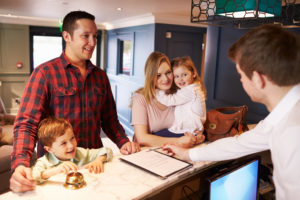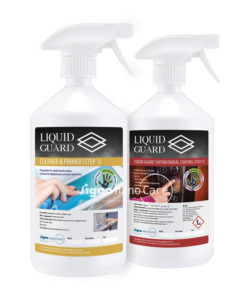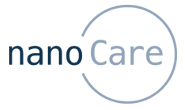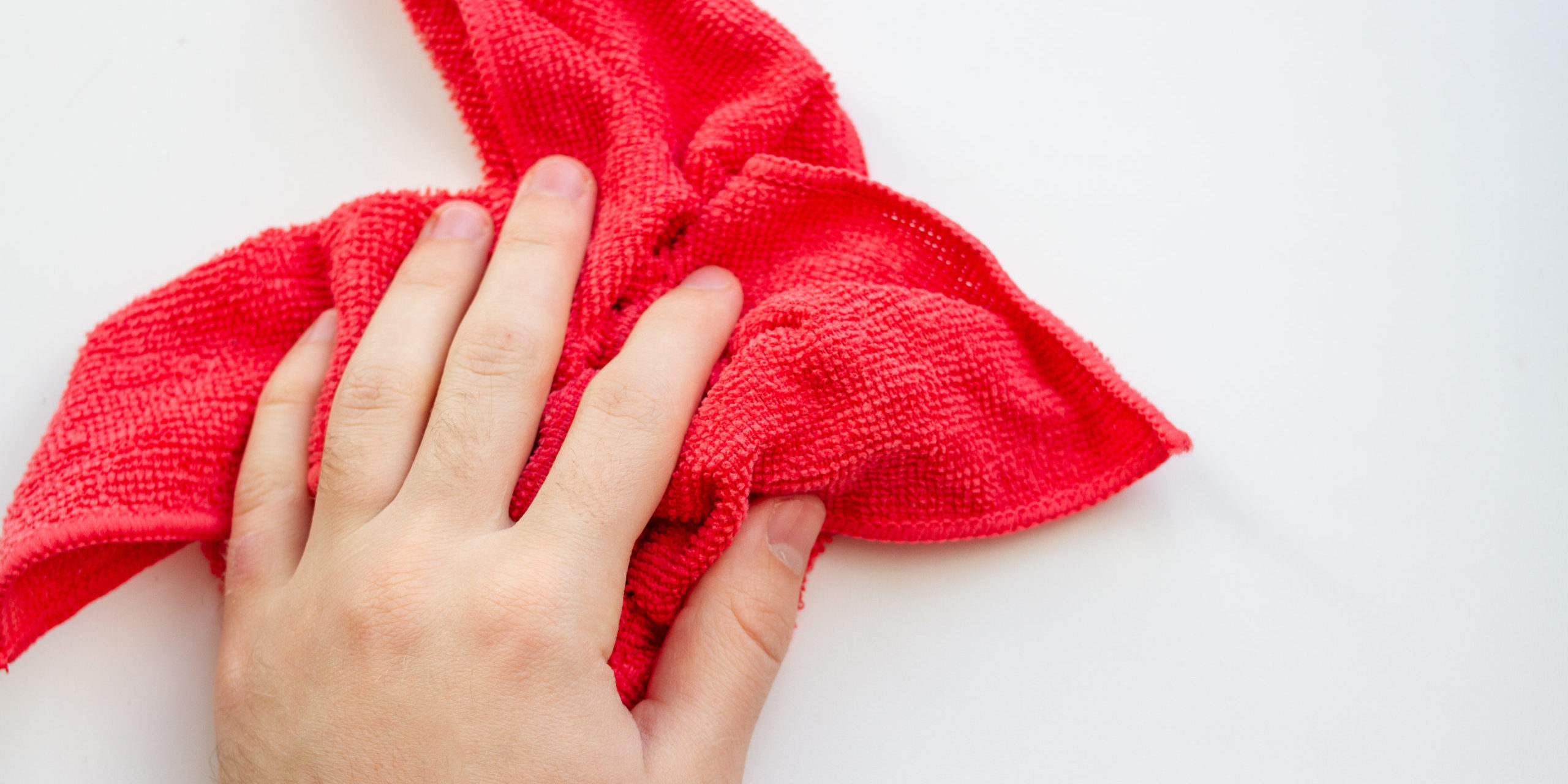Following the announcement from the UK Government, the final easing of lockdown measures will be delayed by four weeks until the 19th July. The aim is to allow the vaccination programme to be accelerated so that 89% of adults will have had one dose and 76% will have had both, helping reduce the cases of severe illness or death.
Boris Johnson also made the statement that ‘we must learn to live with Covid’; so what does this mean after the 19th July, when larger social gatherings could be allowed indoors and out, and when social distancing measures and mask wearing are possibly no longer mandatory?

Family Checking In At Hotel Reception Desk
While there will be people who just want to forget the last eighteen months and return to the pre-pandemic normality – and will do so easily; equally there will be those who cannot go back to previous norms because they are either concerned, unsettled or even scared.
Constant cleaning, while visually reassuring for customers, clients and other building users, is a huge cost that is unsustainable in the long-term for most businesses. So, what other measures can be put in place to help stop the spread between friends, families and strangers?
One of the great benefits of regular Covid cleaning is that it provides peace-of-mind visibility, and effective anti-viral cleaners should kill viruses irrespective of strain if they are properly diluted and applied. However, the current levels of repeat cleaning or spot cleaning are financially and environmentally unsustainable. Furthermore, in-between cleans, surface held viruses are ready and able to transfer to skin on contact.
Throughout the last eighteen months, many new technologies have come to the fore to provide ways and means of dealing with the pandemic. One of these is long-term antiviral coatings such as Liquid Guard™. Due to the active ingredient in the chemical makeup and resulting surface structure of this particular nano-coating, it physically kills microbes that land on it from a sneeze, cough or hand transfer – constantly.
Liquid Guard™ (and Liquid Guard™ Textile) permanently adheres to hard surface substrates (and textiles) such as tables, door handles, stair bannisters, and touch screens. It is scratch resistant, free from SVHC’s and its effectiveness has been tested and certified against enveloped viruses such as SARS CoV-2. Once applied, regular pre-pandemic cleaning routines can be reinstated for normal upkeep to remove dust and debris from the surface, while the coating only requires reapplication in twelve months’ time.

Anti-microbial 1l Liquid Guard Coating System bottles
The burning question: Can a once-a-year coating really keep a surface constantly free from Covid and other viruses? Yes! Liquid Guard applicators and end users (including UK Govt service providers) have undertaken adenosine triphosphate (ATP) testing on surfaces post-application to verify effectiveness, the results of which can be seen here. The product has been evaluated and taken up by many national organisations over the pandemic, including schools, airports, supermarkets and other well known commercial organisations including G4S and Burnley Football Club.
Liquid Guard permanent bond antimicrobial coating offers facilities managers of business and public space a real alternative to continual wiping down of surfaces – morning, noon and night. It offers long-term, independently tested and certified antimicrobial action that is financially sustainable: today, next week and in 52 weeks’ time!









